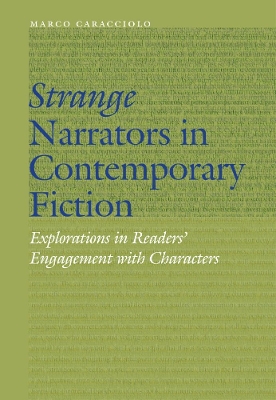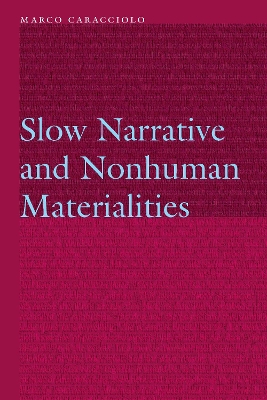Frontiers of Narrative
2 total works
A storyteller's craft can often be judged by how convincingly the narrative captures the identity and personality of its characters. In this book, the characters who take center stage are "strange" first-person narrators: they are fascinating because of how they are at odds with what the reader would wish or expect to hear-while remaining reassuringly familiar in voice, interactions, and conversations. Combining literary analysis with research in cognitive and social psychology, Marco Caracciolo focuses on readers' encounters with the "strange" narrators of ten contemporary novels, including Bret Easton Ellis's American Psycho, Haruki Murakami's Hard-Boiled Wonderland and the End of the World, and Mark Haddon's The Curious Incident of the Dog in the Night-Time. Caracciolo explores readers' responses to narrators who suffer from neurocognitive or developmental disorders, who are mentally disturbed due to multiple personality disorder or psychopathy, whose consciousness is split between two parallel dimensions or is disembodied, who are animals, or who lose their sanity.
A foray into current work on reception, reader-response, cognitive literary study, and narratology, Strange Narrators in Contemporary Fiction illustrates why any encounter with a fictional text is a complex negotiation of interlaced feelings, thoughts, experiences, and interpretations.
Caracciolo centers the experiential effects of narrative and offers a range of theoretically grounded readings that complement the formal language of narrative theory. These close readings demonstrate that slowness is not a matter of measurable time but a "thickening" of attention that reveals the deeply multithreaded nature of reality. The importance of this realization cannot be overstated: through an investment in the here and now of experience, slow narrative can help us manage the uncertainty of living in an era marked by dramatically shifting climate patterns.

